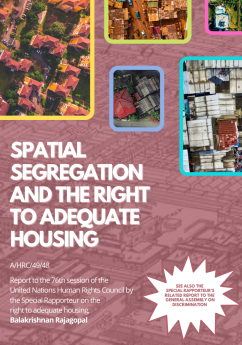Thematic reports
A/HRC/49/48: Spatial segregation and the right to adequate housing - Report of the Special Rapporteur on adequate housing as a component of the right to an adequate standard of living, and on the right to non-discrimination in this context, Balakrishnan Rajagopal
Published
04 March 2022
UN symbol
A/HRC/49/48
Focus
